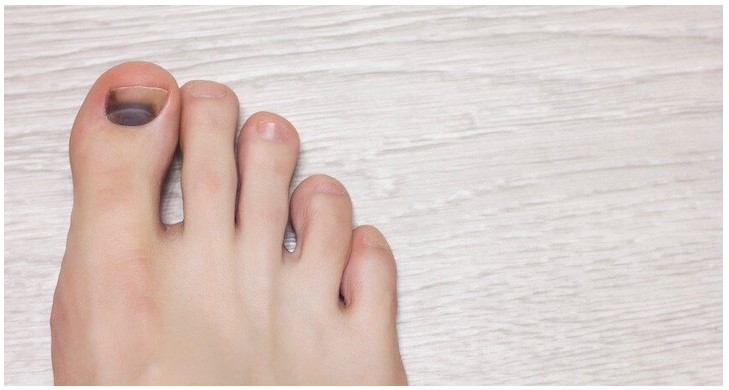
Nail turning black is a common condition that can be caused by a variety of factors. It can be a sign of an underlying medical condition or simply a result of trauma to the nail. Nail discoloration can also be caused by fungal infections, medications, and even environmental factors. In this article, we will discuss the possible causes of nail turning black and nail discoloration, as well as the treatments available. We will also provide tips on how to prevent nail discoloration and keep your nails healthy.
What Causes Nails to Turn Black? Exploring the Possible Causes of Nail Discoloration
Nail discoloration is a common condition that can cause the nails to turn black, blue, green, yellow, or white. While the cause of nail discoloration can vary, it is important to understand the potential causes in order to determine the best course of treatment.
One of the most common causes of nail discoloration is a fungal infection. Fungal infections of the nails can cause the nails to turn yellow, brown, or black. These infections are typically caused by a type of fungus called dermatophytes, which can be contracted from contact with contaminated surfaces or objects. Treatment for fungal infections of the nails typically involves antifungal medications, such as creams, ointments, or oral medications.
Another potential cause of nail discoloration is trauma to the nail. Trauma to the nail can cause the nail to turn black, blue, or green. This discoloration is caused by the accumulation of blood or other fluids beneath the nail. Treatment for this type of discoloration typically involves allowing the nail to heal on its own, although in some cases, a doctor may need to remove the nail in order to allow the underlying tissue to heal.
In some cases, nail discoloration can be caused by a medical condition. Conditions such as psoriasis, lichen planus, and alopecia areata can cause the nails to turn yellow, white, or black. Treatment for these conditions typically involves medications, such as topical creams or oral medications.
Finally, nail discoloration can also be caused by certain medications. Certain medications, such as antibiotics, antifungals, and chemotherapy drugs, can cause the nails to turn yellow, white, or black. If you are taking any of these medications and notice changes in your nails, it is important to speak to your doctor about the potential side effects.
In conclusion, nail discoloration can be caused by a variety of factors, including fungal infections, trauma to the nail, medical conditions, and certain medications. If you are experiencing changes in your nails, it is important to speak to your doctor in order to determine the cause and the best course of treatment.
How to Treat Nail Discoloration: Tips for Preventing and Treating Nail Turning Black
Nail discoloration is a common problem that can be caused by a variety of factors. When the nails turn black, it can be a sign of an underlying medical condition or a result of environmental factors. Fortunately, there are steps you can take to prevent and treat nail discoloration.
Prevention
The best way to prevent nail discoloration is to practice good nail hygiene. This includes keeping your nails clean and dry, wearing gloves when working with harsh chemicals, and avoiding nail biting and picking. Additionally, it is important to keep your nails trimmed and filed regularly to prevent them from becoming too long or brittle.
Treatment
If your nails have already turned black, there are several treatments you can try. First, you should consult a doctor to determine the cause of the discoloration. Depending on the cause, your doctor may recommend a topical cream or ointment to help restore the natural color of your nails. Additionally, you may need to take oral medications or undergo laser treatments to treat the underlying condition.
If the discoloration is caused by environmental factors, you can try using a nail whitening product. These products contain bleaching agents that can help restore the natural color of your nails. However, it is important to follow the instructions carefully and avoid overusing the product, as this can cause further damage to your nails.
Finally, you can also try using natural remedies to treat nail discoloration. For example, you can soak your nails in a mixture of lemon juice and olive oil for 10 minutes each day. This can help to lighten the color of your nails and restore their natural shine.
By following these tips, you can help prevent and treat nail discoloration. However, if the discoloration persists, it is important to consult a doctor to determine the underlying cause and receive the appropriate treatment.
Conclusion
Nail turning black is a common condition that can be caused by a variety of factors, including trauma, fungal infections, and certain medications. It is important to seek medical advice if you experience any changes in the color of your nails, as this could be a sign of an underlying medical condition. Treatment for nail discoloration will depend on the underlying cause, and may include antifungal medications, antibiotics, or lifestyle changes.